|
Having ravaged New York, London and other wealthy cities, the coronavirus pandemic is now spreading quickly into some of the poorest places on earth such as urban slums in Brazil and Bangladesh. The standard response of immaculate hygiene and stay-at-home orders won’t work in these precarious urban settlements warn urbanists Robert Muggah and Richard Florida. Food, running water, private toilets, and savings accounts are all scarce in slums, forcing poor people to choose between hunger and sickness - and putting residents at odds with police.
The impact of policy responses to curb the spread of the coronavirus pandemic is expected to last for a long time. One such measure is the closure of schools, which has affected more than 90% of enrolled learners around the world. Imran Rasul, Andrea Smurra and Oriana Bandiera draw on lessons from the 2014-2016 Ebola epidemic in Sierre Leone, where steps were taken to offer girls and young women safe places to go to during the closure of all primary and secondary schools. And Samantha Keppler and Karen Smilowitz explain why schools will have to expand to ensure they’re less crowded.
|
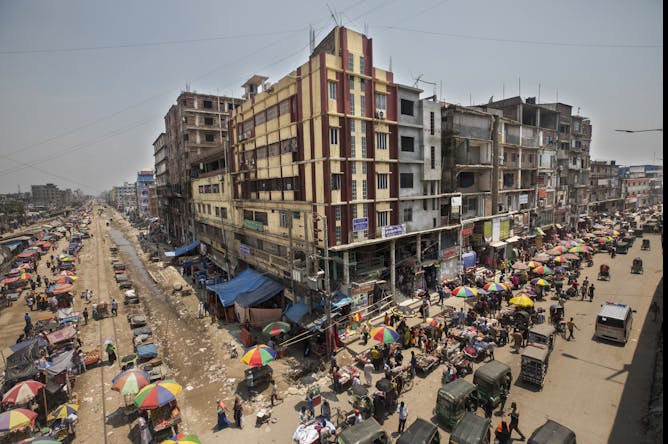
A market area in Dhaka, the Bangladeshi capital, crowded with people despite the coronavirus pandemic, May 12, 2020.
hmed Salahuddin/NurPhoto via Getty Images
Robert Muggah, Pontifical Catholic University of Rio de Janeiro (PUC-Rio); Richard Florida, University of Toronto
COVID-19 is spreading fast through not only the world's richest cities but also its poorest, ravaging slum areas where risk factors like overcrowding and poverty accelerate disease transmission.
|
|
|
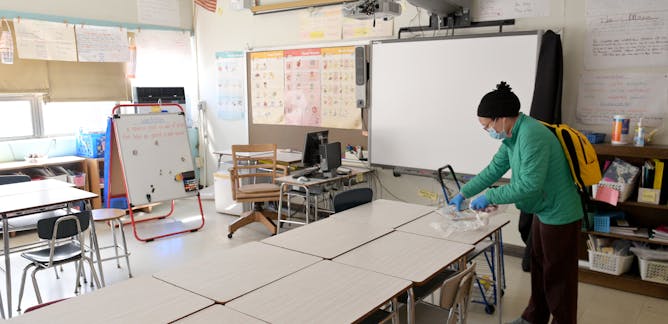
Samantha Keppler, University of Michigan; Karen Smilowitz, Northwestern University
Making classrooms, cafeterias and other spaces less crowded will be essential. There are two main ways to do that.
| |
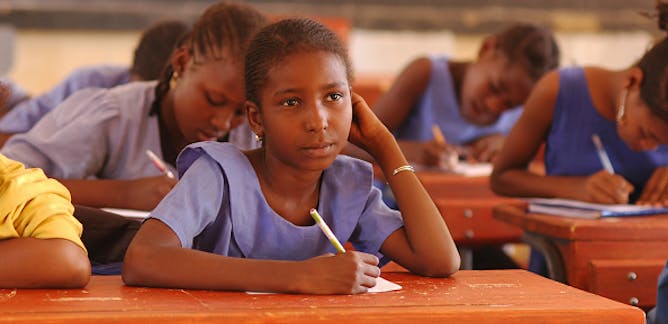
Imran Rasul, International Growth Centre; Andrea Smurra, International Growth Centre; Oriana Bandiera, London School of Economics and Political Science
Special steps need to be taken to blunt the impact of school closures, particuarly on girls.
|
|
|
Politics + Society
|
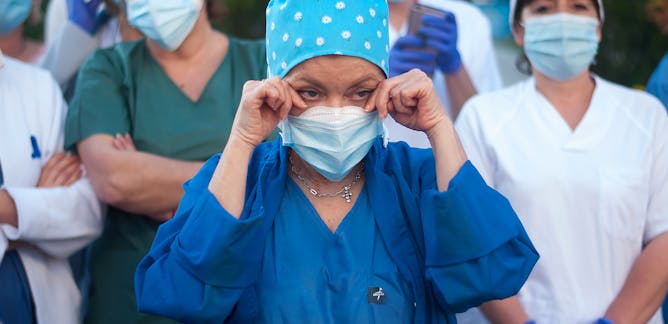
Adam Kamradt-Scott, University of Sydney
China has only agreed to an investigation if it happens after the pandemic and is led by the WHO – two stipulations that likely won't sit well with western countries.
| |
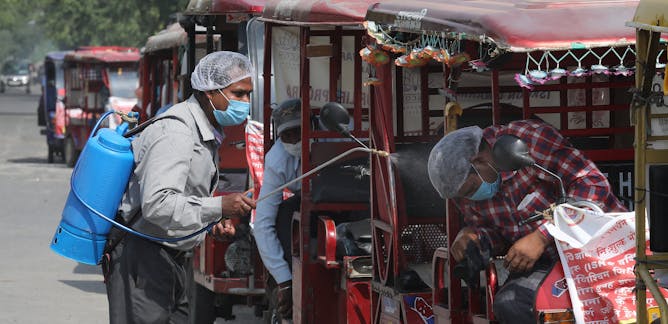
Matt Baillie Smith, Northumbria University, Newcastle
The work of volunteers is political and that matters.
|
|
|
Health + Medicine
|

Chris Wilson, University of East Anglia
There is a sad precedent of pandemic disease threatening the residents of care institutions – and of authorities not heeding the dangers.
| |

Alexander (Sasha) Poltorak, Tufts University
We blame the coronavirus for the thousands of deaths, but it is actually a hyperactive immune reaction that is the cause of death. An immunologist explains.
|
|
|